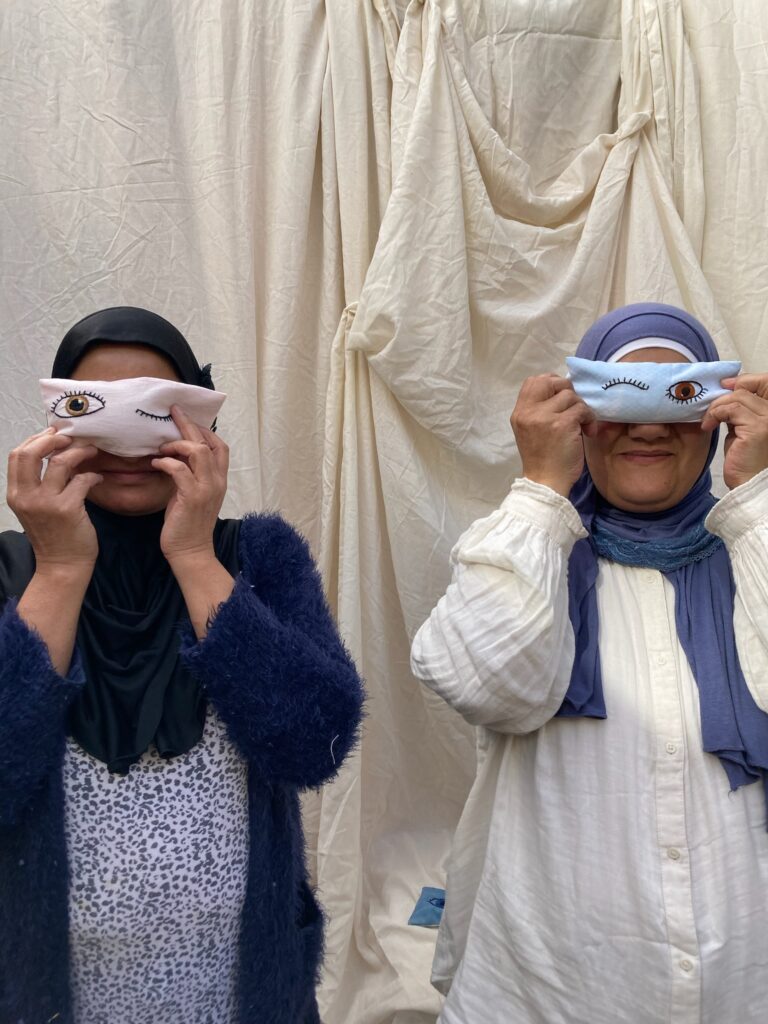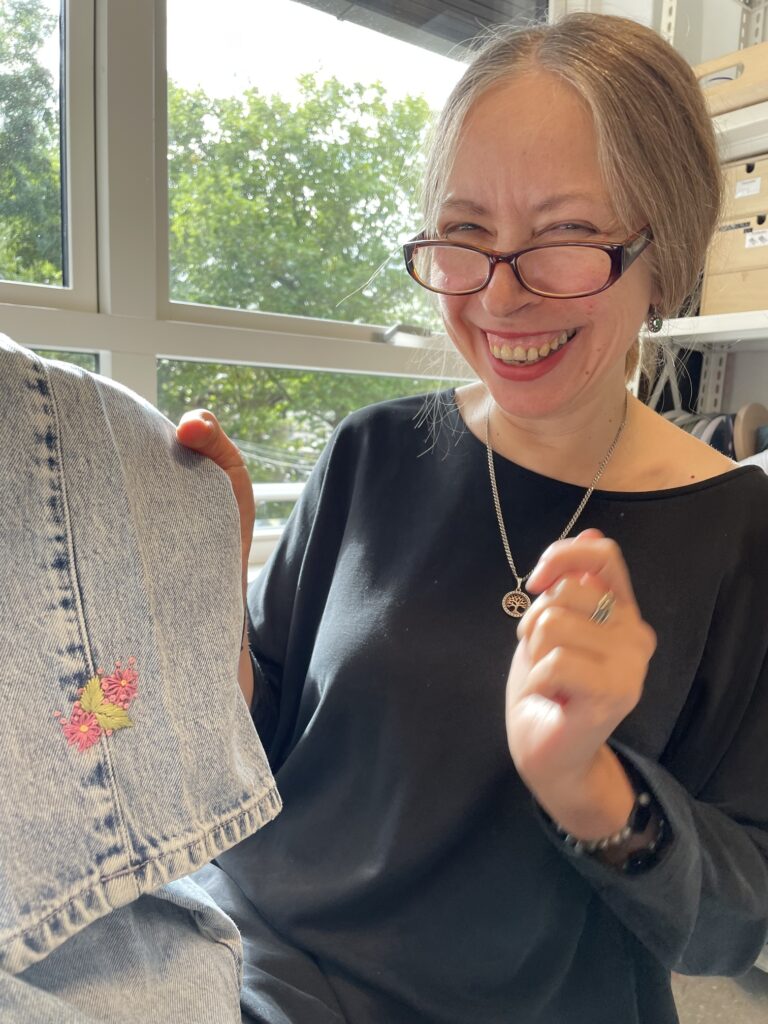20 June, 2025
I Tråd Med Verden: sustainable development for women and the world
Oak Foundation Denmark / Partner story
When Olena Khrystynchenko arrived in Denmark from Ukraine in 2022, her world had been turned upside down. After three decades as a librarian, she found herself displaced by war and struggling to start over. But just nine months later, Olena found a new purpose through I Tråd Med Verden, a Danish organisation that connects women furthest from opportunity with meaningful work through sewing and textile design.
“It means a lot to me to work here,” Olena explains. “In Ukraine, I always dreamed of doing something more creative. I’ve sewn my whole life, and now I can do it professionally.”
Olena’s story is just one example of the transformative impact of I Tråd Med Verden. Headquartered in Copenhagen, it helps women from diverse backgrounds find a path back into the workforce through their local communities. The name, which loosely translates to ‘In line with the world’, conveys a special double meaning in Danish, playing on the concept of thread and its ability to build both literal and metaphorical connections.
“We serve a broad group of people. It’s mostly women who, for one reason or another, are outside the typical labour market. They need help finding their way back, developing skills, and experiencing the pride of accomplishing something themselves and being part of a community.” says Martha Nina Ozmec, head of people and development at I Tråd Med Verden.
At I Tråd Med Verden, crafting becomes a source of healing. “Working with your hands has been shown to help calm the nervous system,” Martha explains. “We aim to help people lift themselves up.”
For Liv Bejer Heckmann, head of design and development at I Tråd Med Verden, sewing and social work go hand in hand. “There’s a lot of female power in what we do,” Liv explains. “We’ve created a space where both the work and the women doing handicraft are taken seriously and are empowered.”
Language is another key barrier that I Tråd Med Verden helps women overcome. Many of the participants are still learning Danish, and the workshop becomes a supportive space to practise without fear. “We’ve often seen women start here shy about their Danish skills,” says Liv. “But within weeks, they’re helping translate for new women. That transformation is so powerful.”


The photos throughout the Oak Foundation Denmark section of the report feature staff and members of I Tråd Med Verden, a Copenhagen-based organisation that connects women furthest from opportunity with meaningful work through sewing and textile design. © I Tråd Med Verden
The products that Liv, Olena, and their colleagues produce are as unique as the women creating them. Whether repurposing linens donated by the hospitality industry into Scandinavian-style home décor, or upcycling old museum banners into tote bags, their designs revolve around the concept of reuse and transformation.
Over the past decade, Martha has noticed a shift in how companies approach their responsibility for reducing waste and selecting environmentally friendly materials. “It’s been great to connect with businesses that want to buy something better and more meaningful than they could find elsewhere,” Martha explains. This change has helped raise visibility of I Tråd Med Verden’s work.
“We see possibilities in materials that others would just dispose of,” Liv explains. “But for me the exciting part begins when we match the materials with a particular woman’s skills. That’s when something uniquely ‘I Tråd Med Verden‘ is created.”
Over the next three years, I Tråd Med Verden plans to invest in strengthening its leadership team and building strategic partnerships with both public and private entities. By 2028, this support will allow it to create 70 per cent more employment opportunities for women furthest from opportunity, and expand its social programmes to welcome 60 per cent more people into the workshop.
This project falls under Oak Foundation Denmark, which seeks to support innovative solutions that improve the daily lives and future prospects of socially vulnerable and marginalised groups.